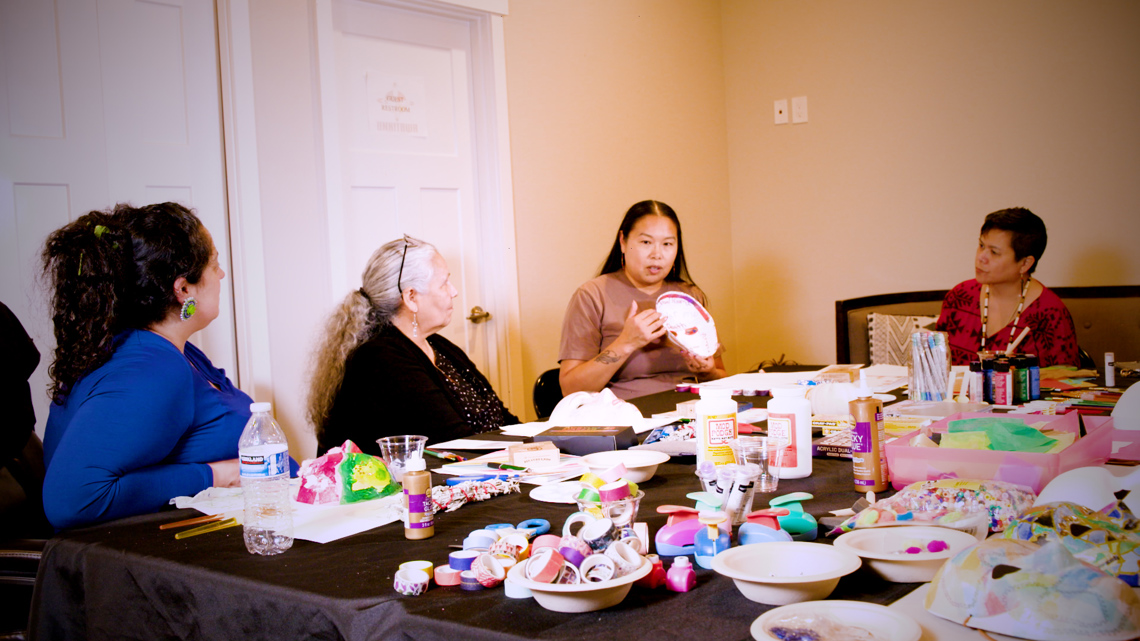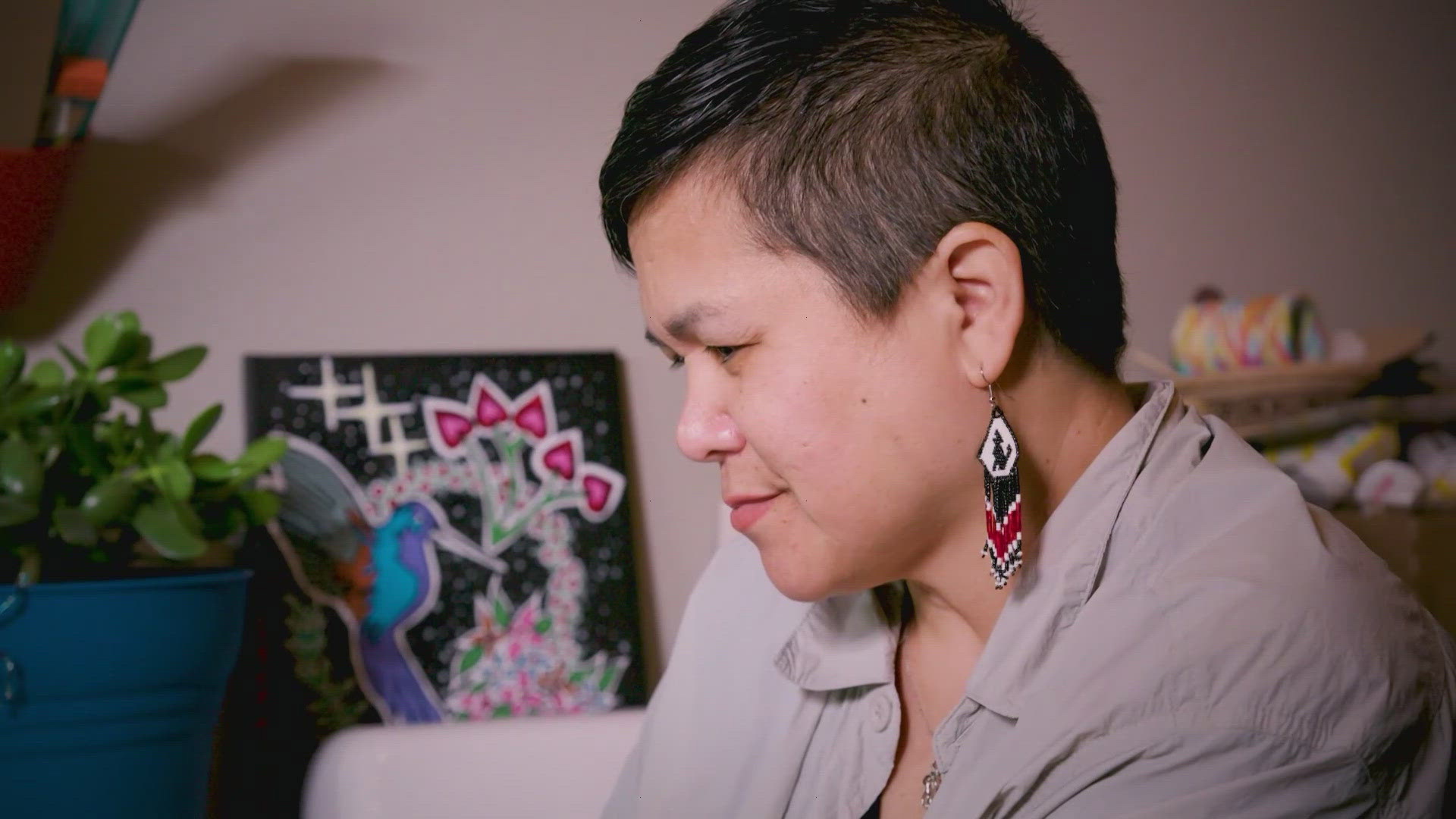SEATTLE — Donna Helterbridle-Baker is a mixed-media artist, a descendant of the Central Sierra Tuolumne Band of Me-Wuk and Northern Yokut, and also a veteran of the U.S. Army.
According to the U.S. Department of Veterans Affairs, 11.3% of all women veterans are Native.
"My Native American heritage has shaped me into this strong woman warrior that I feel I am today," Helterbridle-Baker said. "I feel like I'm more equipped to be seen and heard. I feel empowered.”
Helterbridle-Baker was adopted as a young child and grew up in a multi-ethnic home, but did not know about her Native heritage until she was in her 30s. She spent 12 years in the military, joining right at 18 in 1987 and leaving in 1995.
"I was stationed at the 98th General Hospital in Nuremberg, Germany," she said. "We were Support Unit for those people during the Gulf War. I served in the ophthalmology clinic."
Helterbridle-Baker is proud of her time in the military. However, the experience brought challenges that stuck with her.
"When I was serving active duty, there were a lot of things that happened to me," she said. "When I was serving in Fort Bragg, I was raped. I didn't know what to do. Unfortunately, it's something I carried with me to my next duty station."
At her next station in Germany, Helterbridle-Baker said the non-commissioned officer in charge at her clinic used to make unwanted advances toward her - and she didn't know where to turn.
"I didn't know who to report it to. A lot of times, women, they work with a lot of male presence, so there's nobody to go to," she said. "There's nobody to talk to. Unfortunately, you just have to kind of deal with it, and just carry on. That's what I did. And I think a lot of other women that have served have gone through that same process."
After Helterbridle-Baker got out of the army, she moved to Seattle where she was able to meet other Native female veterans. On her journey to healing, she discovered art therapy.
"It opened up a whole new avenue for me," she said.
Helterbride-Baker now works as a Veterans Resource Assistant at Unkitawa for the Akichta Veteran Warriors Program. There, she created an art class specifically for Native women veterans, called Art Expressions, in hopes of helping others.


"There's a lot of trauma in our DNA - not just our military service," she said. "I felt that it was important to have a safe space and create a visual piece."
Darla Dee Smith is one of the Native women veterans that Helterbridle-Baker met in Seattle. She is a U.S. Navy SeaBee veteran.
"We instantly connected," Smith said.
Helterbridle-Baker told Smith about the art program, convincing her to come to a class, which turned out to be a major benefit to her.
Smith has Makah, Chehalis, Yakama, Puyallup, Quileute and Cowlitz ancestry, but was mostly raised in Seattle.
"This art class helped me cope with my PTSD," Smith said. "That comes from the sexual trauma that happened to me in the military."
American Indian and Alaska Native veterans report experiencing PTSD at almost double the rate of non-Hispanic white Veterans, according to the U.S. Department of Veterans Affairs.
"Native female veterans are challenged in the fact that, sometimes we are not seen or heard," Helterbride-Baker said. "We're overlooked."
"We leave from home and we go to military service," Smith said. "Not being part of the community to practice my culture... it was really hard."
Art Expressions creates a space where Native women veterans can work on healing from their experiences, and feel seen in the company of their peers.
"I would like to send the message to other Native female veterans, that you're not alone," Helterbridle-Baker said. "We are Native women. We're strong. We're bonded. We have stories to share of our culture, of our service to the country, and we need to make sure that our children know and that the world knows that we exist."
If you are a female veteran and need support, the Washington state Department of Veterans Affairs provides services that includes counseling and other resources.

